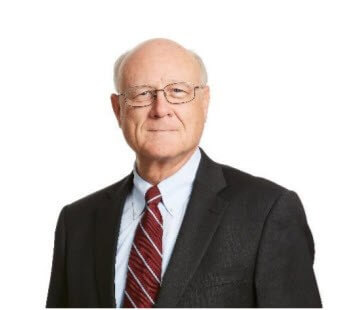Powering the Energy Market: Your Questions Answered
For our December 2 Market Pulse webinar, our panel of experts discussed the current and future state of the energy industry. This month’s presenters included Sarah Briscoe, Lead Commercial Statistical Analyst at Equifax; Robert Wescott, President and Founder at Keybridge; Sean Holland, Vice President of North America at Just Energy; and Tom Aliff, Risk Consulting Leader at Equifax. Presenters followed up with audience members’ questions* about inflation, the current economy, the latest auto industry trends, and more. Watch a replay of our webinar, “Market Pulse: Powering the Energy Market in 2022” or download a copy of the presentation.
Have you modeled the impact of the proposed new stimulus if Build Back Better is actually passed?
 Rob Wescott: We (Keybridge)
have done a detailed analysis of the infrastructure plan. However, we
do not have a complete analysis of Build Back Better. The two parts
it's going to have effects on are consumption and on investment. On
consumption it's boosting spending for child-like tax credits and
putting higher taxes on rich families. That way we know lower income
families that are getting the child tax rate, are going to pay that
money out and spend that money really fast.
Rob Wescott: We (Keybridge)
have done a detailed analysis of the infrastructure plan. However, we
do not have a complete analysis of Build Back Better. The two parts
it's going to have effects on are consumption and on investment. On
consumption it's boosting spending for child-like tax credits and
putting higher taxes on rich families. That way we know lower income
families that are getting the child tax rate, are going to pay that
money out and spend that money really fast.
On balance, this is a plus for spending for economic growth in the early parts of 2022. There was a recent study that said that the Texas border region with Mexico was one of the biggest beneficiaries of the child tax credit. There's a lot of kids along the border and those households spent the money rapidly. Actually, the border regions of Texas did better than Dallas, Houston, and the rest of the Texas economy. However, the other part of it is the impact on investment. It's going to put money into battery plants. That's going to be a big plus for the auto sector and manufacturing sector. They would put a 15% minimum global tax on corporations.
Likewise, that’s really going to depend on what companies are actually paying in taxes. If firms are getting really low tax rates they're probably going to have their costs of capital go up there poking a cut investment spending. If you're one of the favorite sectors like automobile manufacturing EBs and everything you're going to benefit from it.
 What impact
are you seeing, if any, of Buy Now, Pay Later on BankCard/PL
originations/balances?
What impact
are you seeing, if any, of Buy Now, Pay Later on BankCard/PL
originations/balances?
Tom Aliff: As of now we are not seeing a major impact in terms of the Buy Now, Pay Later accounts. We are starting to consider how those are going to be reported into the file. We do see some of those balances coming in today. But, there's not a defined clear expectation for that yet. However, we are continuing to track that over time and will be reporting back on that in the coming months.
Have you given thought to the probability of stagflation by the end of next year? Do you think that'll be a topic of discussion when we do this again next December?
Robert Wescott: Increasingly in the United Kingdom they're having a stagflation debate. That's a word we hadn't heard for 30 years and suddenly we're hearing that word. I am worried that inflation is going to be stickier than the Federal Government thinks. We're not going back to 2% inflation. If inflation sticks in the three to four range, I think stagflation is less likely. If it sticks in the five to six range, we are more at risk of stagflation. We will worry more about stagflation a year from now. However, it is now entering the discussion and it's not a word we really want to be hearing.
When COVID-19 first hit, the world economy shut down, do you worry that the Omicron variant will bring a similar shut down?
Rob Wescott: I think we're not going back to a broad shutdown. Politically that's not going to be sustainable. I can see stricter regulations coming like proof of vaccine to get on an airplane and things like that. But I do not think we're going to go back to a massive shutdown. We will not lock the doors like we did in March and April of 2020. There are a few countries in the world like Austria and some of the European countries, who are going back into lockdown mode. France and Spain are going back into lockdown mode where you're only allowed out your front door to do food shopping. I don't think that's going to be the case in the United States. Read about our fireside chat with Sean Holland from Just Energy here.
Click here to watch the December Market Pulse webinar for more on the current and future state of the Energy market. Access additional related insights here.
* The opinions, estimates and forecasts presented herein are for general information use only. This material is based upon information that we consider to be reliable, but we do not represent that it is accurate or complete. No person should consider distribution of this material as making any representation or warranty with respect to such material and should not rely upon it as such. Equifax does not assume any liability for any loss that may result from the reliance by any person upon any such information or opinions. Such information and opinions are subject to change without notice. The opinions, estimates, forecasts, and other views published herein represent the views of the presenters as of the date indicated and do not necessarily represent the views of Equifax or its management.
Recommended for you



